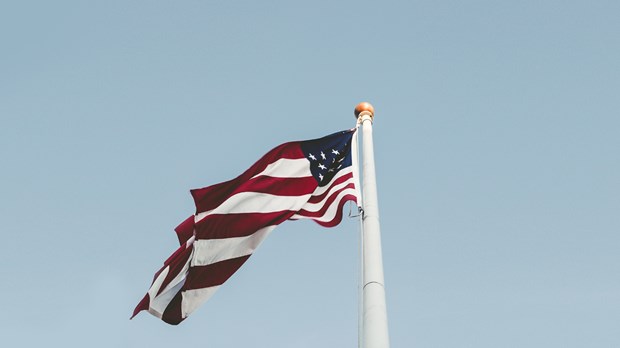Raising Good Citizens

As a connoisseur of history, I have a deep love for my country—a love I desire to pass on to my own children. Without a true love and appreciation for the country they live in, our children will become nothing more than disengaged citizens who aren't likely to even take advantage of their right to vote.
Civics, a required course when I was in school, is on a continuing decline. If taught at all, civics is usually woven into other curriculum as a side note or reduced to a single-semester high school emphasis in social studies, not a separate, full-year course like it was when I was in high school.
Of course, this year with a presidential election looming, debates and mock elections are all the rage. But that's not the norm.
A de-emphasis on the importance of citizenship could have long-term consequences. Our children will become adults who are faced with crises like global warming and health-care issues. Will they be informed and active participants in the political process?
Our freedoms depend on active citizens who understand basic moral principles—right from wrong, good from bad—and are willing to take a stand for what is right and good in the sight of God. My prayer is that we will each diligently teach our children these principles even as we hold fast to them ourselves.
The freedoms we enjoy are not guaranteed. We owe it to our children to help them both appreciate and protect those freedoms. As President Ronald Reagan declared, "Freedom is never more than one generation away from extinction. We didn't pass it on to our children in the bloodstream. The only way they can inherit the freedom we have known is if we fight for it, protect it, defend it, and then hand it to them with the well-taught lessons of how they in their lifetime must do the same." (You can listen to Reagan's full speech here.)
Our current society, for the most part, models apathy toward citizenship. Citizenship is a given for many, a right that is taken for granted. The historical Christian approach to citizenship, which we should be modeling, is proactive: We pray, we vote, we serve. We are to be salt and light (see Matthew 5:13-16), transforming society one citizen at a time.
Titus 3:1-2 lays the groundwork for being a good citizen: "Remind the believers to submit to the government and its officers. They should be obedient, always ready to do what is good. They must not slander anyone and must avoid quarreling. Instead, they should be gentle and show true humility to everyone."
As parents, we can't expect that our kids will learn about citizenship the way we would like them to at school. We can be instrumental in raising good citizens, citizens who love their country and will look after its interests.
Here are some practical ways we can raise our children to become good citizens:
• Go to the polls. Get your children involved in the voting process by taking them to the polls with you. Explain the electoral process in an age-appropriate way. Talk about who you're voting for and why. Hold mock elections at home. Even two-year-olds can get into the fun when the whole family votes on whether to go out for pizza or go to McDonald's.
• Explore local, state, and national history. Take your kids on mini-field trips of your own to visit your state capital and local historic sites. Plan a vacation to the nation's capital. Give age-appropriate historical non-fiction and fiction books to your kids. The Drive Thru History America DVD set is designed for kids ages 8 through 14 and includes inspiring real-life stories, humor, and fantastic footage. My kids ages 6 to 16 love them. Getting up close and personal with history will help kids develop a love and appreciation for their country.
• Be a model citizen. Our children are watching our everyday lives, so we need to consider what our actions are saying. For example, do you vote regularly? Obey laws, even if you don't agree with them? Serve jury duty when called? Work for change? These things impact our kids more than we know.
• Submit to authority. The coming election is a great time to discuss God's desire for us to submit to our country's chosen leaders: "Everyone must submit to governing authorities. For all authority comes from God, and those in positions of authority have been placed there by God" (Romans 13:1). That doesn't mean we don't work to change what goes against God's Word, but it does mean that we recognize his sovereignty in political matters and refrain from bad-mouthing those in charge.
• Enlist the aid of grandparents and other elders. Our children's elders are full of stories—battles they've fought, experiences they've had. See that they have the opportunity to share these stories with your children. Recently my 12-year-old daughter, who volunteers at a local nursing home, was the captive audience-of-one to a man reminiscing about his days in World War II. Firsthand accounts make history real for our kids and leave lasting impressions.
• Be a good neighbor. Being a model citizen requires that our children not only obey those in authority but also get along with others. "Do all that you can to live in peace with everyone" (Romans 12:18). We should actively train our kids to get along with classmates, neighbors, and siblings.
• Get involved in the political process. Tweens and teens especially will benefit from an up-close look at the political process when they volunteer at a local political office for a candidate you support. The candidates' offices seek volunteers to make calls, hand out literature, hang up signs, or stuff envelopes. A hands-on experience will teach our kids like no course can.
• Examine historical documents. Most Americans don't even know what the Declaration of Independence or the U.S. Constitution say. Go to www.archives.gov and print a transcript of the declaration. Have your child circle all the references to God as well as biblical principles, then discuss them. Many prayers and godly quotes attributed to past presidents can be found at www.wallbuilders.com.
• Observe national holidays. Most of us celebrate Independence Day and Memorial Day, but do you also celebrate Presidents Day, Flag Day, Patriots Day, and Veterans Day? These national holidays are great times to instill a spirit of patriotism in our children.
• Give thanks. Those who serve and sacrifice for our freedom deserve more than a simple prayer or a word of thanks on Veterans Day. Make thanksgiving a consistent habit. Thank military personnel whenever you see them in uniform. Take cookies to a veterans hospital. Thank God as a family for the men and women who serve and protect our land and freedoms.
• Make the spiritual connection. In 1813, President John Adams wrote a letter to Thomas Jefferson, in which he conveyed that the general principles on which the fathers achieved independence were the general principles of Christianity. Because they will not hear it in school, we must explain to our children that the liberty we enjoy is a Christian principle.
• Pray. Make prayer for your country a priority with your kids. Pray for those who don't have freedom, and pray for those who fight for it. Pray for our president, government leaders, and citizens (see 1 Timothy 2:1-2). Praying for your country will help children develop a love for their nation.
The basic privilege of citizenship should never be taken for granted. And it's never too early—or too late—to teach our children what it means to be a good citizen.
Tammy Darling is a freelance writer living in Three Springs, Pennsylvania.
Read more articles that highlight writing by Christian women at ChristianityToday.com/Women
 Read These Next
Read These Next
 Church Is Boring!How to counter those Sunday morning complaints.
Church Is Boring!How to counter those Sunday morning complaints.
 How to Love an AtheistA former atheist shares 5 compelling principles
How to Love an AtheistA former atheist shares 5 compelling principles








 Homepage
Homepage